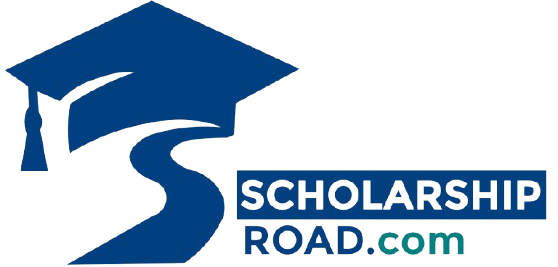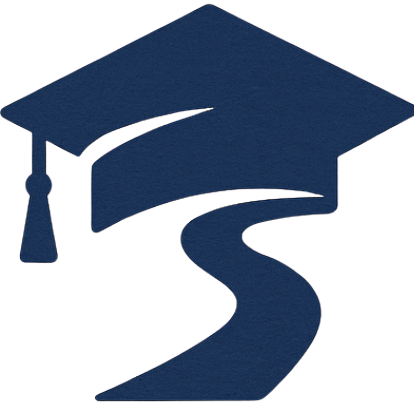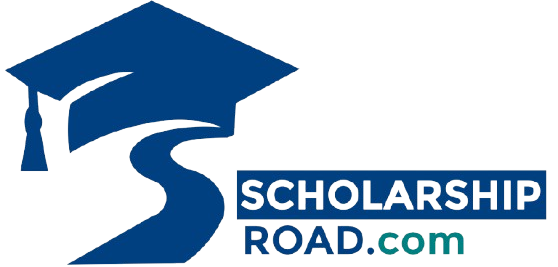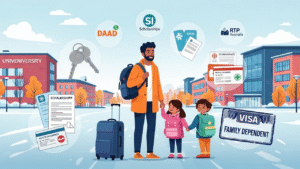And in case you are in the position to talk two, or even more, languages, you are in a strong position. And in case you ever felt that being bilingual seems to fly under the radar and is not really appreciated, you will not be an isolated case.
A lot of European bilingual students are brought up to alternate between languages in a day-to-day manner. They translate to parents, operate in two cultures, or stop using a home language and start using a school one without thinking about it. And the thing is, when it comes to awarding—so to speak, especially money-wise—many do not feel seen.
This is where it stops.
This is a book about you: the bilingual student struggling to establish a place in the system which tends to favor conventional academics. What we are going to do is take a walk through the real opportunities available in Europe that reward what you have learned to do so well: be fluent in the language; know a different culture; and be able to live in two worlds at once.
Why Being Bilingual Is Important (More Than You Know)
Start with this simple fact: being a multilingual person is not only a personal characteristic but also a career advantage, a societal asset, and in most occasions, a cultural bridge.
In Europe, the need is increasingly felt to have individuals able to:
-
Interpret between languages and communities
-
Work in international diplomacy or multicultural settings
-
Navigate cross-border business
-
Promote inclusive education
-
Preserve minority or endangered languages
Indeed, it is not a rare case when bilingualism becomes a deciding factor—whether a student is admitted to a foreign program, earns a competitive internship, or is granted funding for a cultural exchange.
Linguistic diversity is officially advocated by the European Union. Bilingual programs are growing in most schools and universities across most countries. This also includes funding and awards to students who come in with bilingual skills.
That is, you are not “not normal” or “not remarkable”—quite the opposite. What is special about your being bilingual has strength. And it is long overdue that we should take it seriously.
Who Should Read This Article
Bilingual students do not necessarily have the same appearance. Some were raised in multilingual households. Others learned a second language in a foreign country or in a region located along a border. Some people are geometrically bilingual. Others are heritage speakers who still lack confidence in their second language.
This guide is for you if you are:
-
A bilingual or multilingual (at least two languages) student—either formally or informally
-
A child of immigrants balancing two cultures
-
A participant in an Erasmus+ programme studying in a second or third language
-
A speaker of Basque, Bangla, Welsh, Catalan, Sami, or similar minority languages
-
Reclaiming a family language as a heritage speaker
-
A language learner who is already well-conversed or academically fluent
Regardless of your background, this guide will help you gain true recognition, support, and funding.
What Are the Awards That Bilingual Students Could Get?
There may not be a huge scholarship with the label “BILINGUAL STUDENTS ONLY” pasted across the top of a website. But scratch the surface a bit, and you’ll find that in Europe, there are numerous types of recognition—usually under different names.
Which types are the most important? Let us look at each of them.
1. Scholarships That Reward Knowledge of Languages
Most universities in Europe provide scholarships to foreign students in fields such as:
-
Linguistics
-
Interpretation and translation
-
International relations
-
Cross-cultural communication
-
European studies
-
Multilingual education
These are not necessarily reserved for native speakers. Others are awarded depending on how you have used two or more languages in your academic life—or your intention to do so in your future career.
For example, a student who has been studying computer science in English and plans to write a thesis in their native language may be eligible to receive funding through a program that sponsors dual-language studies.
Multilingual students in nations such as the Netherlands, Belgium, Germany, and Finland often receive both merit-based and need-based scholarships in universities.
2. Language Proficiency Awards
Many schools and local governments give prizes to students who show exceptional engagement with bilingualism or multilingualism. These are usually presented:
-
At school or college graduation
-
Through international language competitions
-
During events like the European Day of Languages
They may not always be large sums of money, but they bring recognition—and that can boost your confidence, enhance your resume, and even lead to further scholarship opportunities later on.
3. Minority and Regional Language Grants
If you speak a language that is considered regional or minority in the official sense, you may be eligible for special awards offered to students working to preserve or promote that language.
These can include:
-
College grants to learn your language in school
-
Funding for cultural or media projects in that language
-
Teaching assistantships in language immersion schools
-
Financial support for research, literary, or translation work
Examples include Basque in Spain, Welsh in the UK, Breton in France, and Sámi in northern Europe.
These scholarships are usually provided by:
-
Cultural ministries
-
NGOs
-
University departments or academic institutions
Erasmus+ and EU Language Mobility Programs
Although these awards may not fall strictly under the heading of “bilingual awards,” the Erasmus+ mobility grants are explicitly dependent on your capacity to live and study in different languages.
No matter which country you go to—for an exchange semester, summer program, or internship—being bilingual is what qualifies you and makes you a success.
Indeed, the European Commission specifically supports multilingual learning through Erasmus+ and other mobility programs. The better you can demonstrate your ability to thrive in a multilingual environment, the more doors will open for you.
The European Source of Bilingual Student Awards — Where to Look
Now that you understand the types of awards, the next step is knowing where to find them.
1. Scholarship Pages of Universities
Start by visiting the international office or financial aid pages of universities you’re interested in. Look for keywords like:
-
Multilingual
-
International student
-
Language excellence
-
Cultural diversity
-
Interpretation or translation
Many universities also offer dedicated scholarships to students in dual-language degree programs. If you’re applying to a Master’s program in translation, for example, your bilingual background gives you an advantage—even if the scholarship is listed as merit-based.
Here are some of the top university systems that actively support multilingual students:
-
Helsinki University (Finland)
-
KU Leuven (Belgium)
-
University of Barcelona (Spain)
-
Charles University (Czech Republic)
-
University of Vienna (Austria)
2. National Scholarship Portals
Many European countries maintain centralized scholarship portals where you can apply filters for studying culture, international learning, and cultural exchange. These filters often lead to awards that naturally favor bilingual profiles.
Key examples include:
-
Campus France (France)
-
DAAD (Germany)
-
OeAD (Austria)
-
Nuffic (Netherlands)
-
Grantfinder (EU-wide)
3. Institutes of Language and Culture
Institutions like the British Council, Goethe-Institut, Instituto Cervantes, and Alliance Française frequently offer award schemes to students of languages. These often come in the form of:
-
Competitions
-
Partnerships
-
Cultural exchange grants
-
Language-oriented internships
They also support teacher training, translation scholarships, and language learning projects across Europe.
What You Really Need to Do to Apply for Bilingual Scholarships
You’ve seen the possibilities. You’ve learned where to look. Maybe you’ve even bookmarked a few scholarship pages. But here’s the real question:
How do you stand out as a bilingual applicant?
This is where your story comes in—something that’s easy to understand, memorable, and powerful.
Even if your resume isn’t perfect or you’ve never applied for funding before, you can still put together a strong, convincing application. Let’s walk through how.
Silence Is Not Impostor Syndrome
First, let’s talk about something real.
Many bilingual students—and even teachers—don’t always feel “bilingual enough.”
Maybe your home language was never formally taught. Maybe you switch between two languages naturally but don’t have official qualifications. Maybe you’re still building confidence in academic writing.
That’s okay.
What matters is this: if you live your life in more than one language—as a speaker, reader, translator, or culturally-travelled person—you hold value.
That lived experience is often just as important as a test score when it comes to bilingual scholarships.
You don’t need a flawless resume or C2 fluency in both languages. What you need is to show how bilingualism shaped who you are.
Get Evidence (Even If It’s Not on Paper)
Scholarship committees usually want proof of your bilingualism. But that doesn’t always mean formal certificates. There are many ways to demonstrate your language skills.
Useful documentation includes:
-
Language exams: IELTS, TOEFL, DELE, DALF, Goethe-Zertifikat, etc.
-
Academic transcripts: Show any foreign language coursework
-
Personal statement: The best place to tell your bilingual story
-
Letters of recommendation: From teachers, mentors, or cultural educators
-
Portfolio work: Essays, translations, bilingual writing samples, or projects
-
Volunteer experience: Teaching, translating, tutoring in another language
-
Mentor confirmation: Even a simple email from a teacher or supervisor noting your bilingual role in a school project can help tell your story
How to Write a Strong Motivation Letter
This is where many applicants either shine—or fall flat.
Your motivation letter is your opportunity to bring your bilingual journey to life. It’s not a list of accomplishments. It’s not a generic message to be forgotten.
Use it to share your voice. Tell your story clearly, honestly, and with intention.
What to include:
-
Your bilingual journey: How and when did you become bilingual? What experiences shaped that?
-
Your connection to both languages: Family, community, travel, or cultural influences
-
Why this scholarship matters: Be specific—how will this support your goals?
-
How you align with the award’s mission: Does it focus on culture, education, internationalism? Show you understand it.
-
Your future goals as a bilingual person: How will you continue using your bilingualism to make a difference?
Write warmly. Avoid templates. Speak from the heart.
Example:
“Having been brought up between Paris and Warsaw, I had been translating since the age of two—rendezvous between languages without ever knowing the term ‘interpreter’ until much later. These episodes didn’t only shape my family life—they led me to study comparative linguistics. Today, I’m applying for this scholarship to research how code-switching affects bilingual learning among children.”
The Errors That Can Damage Your Application
Even the strongest applications can be derailed by small mistakes. These are some of the most common pitfalls—and the good news is, they can all be avoided with a bit of attention.
Common Mistakes:
-
Using a generic application: Tailor every document and form to match the specific award.
-
Missing deadlines: Most scholarships are time-sensitive. Keep a calendar and don’t miss out.
-
Minimizing bilingualism: Never say, “I just speak two languages at home.” OWN your bilingual experience.
-
Ignoring local or smaller awards: Some of the best opportunities are the least competitive.
-
Failure to seek advice: Your instructors, coaches, and university advisors can help strengthen your application—ask them.
Real Life, Real Results
Sofia – Greek-French Student, Brussels
At home, Sofia grew up speaking Greek. At school, she spoke French. In university, she studied European Law but never saw her language skills as special—she thought they were too basic to count. One professor encouraged her to apply for a multilingual leadership award at her university. She wrote an article on studying two legal systems in two languages—and won.
She now works at the European Commission.
Leon – German-Polish, Berlin
Leon spent his teenage years translating for his grandmother and tutoring Polish to younger children. He had no official certificates. But when applying for a minority language preservation grant, he focused on how he helped preserve his heritage language. One of those grants funded a short documentary he created—in both German and Polish.
Real success came from real-life effort—not perfection.
Life as a Bilingual Student in Europe
Getting an award is only the beginning. So what happens after?
Doors Begin to Open
Once your language skills are recognized, new opportunities may start to appear, such as:
-
Invitations to take part in international research or cultural projects
-
Consideration for study abroad or exchange programs
-
Scholarships for internships or apprenticeships
-
Speaking roles or ambassador positions in academic or cultural events
Many students say: after their first award, more came.
Why? Because confidence grows, and so does your network.
But Challenges Can Arise Too
With recognition comes pressure:
-
Pressure to be perfect in both languages
-
Dual identity struggles
-
Emotional fatigue from constantly translating for others
That’s why support systems matter:
-
Join multilingual student groups or international student clubs
-
Attend cultural exchange nights or university language cafés
-
Talk to mentors or language coaches
-
And most importantly—rest when needed.
Language fatigue is real, and you don’t have to prove yourself every day.
Additional Tools and Materials
To make your bilingual journey easier and better supported, consider exploring:
| Resource | What It Offers |
|---|---|
| Study.eu | Scholarship and program listings across Europe |
| DAAD | German scholarships (many for multilingual students) |
| Campus France | French education and scholarship portal |
| Erasmus+ | EU mobility funding and language learning support |
| British Council | Language grants and cultural exchange funding |
| Goethe-Institut | German language programs and scholarships |
| Institut Ramon Llull | Catalan language and cultural grants |
Bookmark the portals and institutions mentioned throughout this guide. Set a reminder to check them regularly—because timing is everything.
Final Encouragement
Being bilingual isn’t always easy.
It means shifting mental gears.
It means sometimes feeling like an outsider in more than one room.
It means balancing between multiple voices—internal and external.
But it’s also a gift.
It’s a tool of empathy. It’s a career advantage. And most importantly, it’s something that deserves recognition and support.
Don’t let the voice inside your head convince you that you’re not “the right kind” of bilingual.
You are. There are doors in Europe waiting to open—but only when you knock.
Apply. Ask. Tell us what happened. You don’t know who’s waiting to hear your story—and how many others you might inspire.









